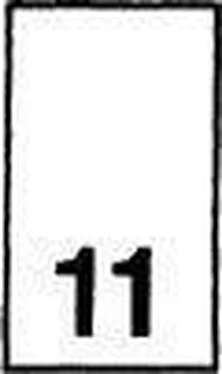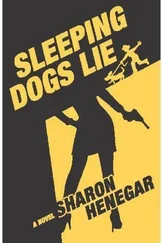Carlo Balacontano was playing gin with the Mexican counterfeiter. As he laid down the nine of clubs he watched the man’s left arm and saw the tattooed scrollwork on his bicep move a little. He wondered if this was the sign. For years Bala had been studying parts of the hundred-dollar bill the maniac had tattooed on himself to see if he could discover a nervous twitch. But the nine of clubs didn’t attract Ospina. He moved his left arm to scratch an itch on his face, then drew a card from the pile.
Carl Bala hated losing more than he hated death. He was an old man now, sixty-six, but life in the prison had allowed him no vices. He ate plain, nutritious food, breathed clean, dry air and was forced into the moderate exercise of cleaning one of the outbuildings each day. He knew he was living a life that was much like his grandfather’s in the mountains of Sicily, and would probably last the same 104 years. Death was still a remote prospect, but losing was a daily experience.
The tattooed Mexican grinned at him, laid down his hand in a fan and said, “Gin.” Balacontano looked at the ten cards with distaste. The wily little bastard hadn’t even been collecting clubs; he had picked up the eight just to make four eights. Bala forced a smile and wrote down the thirty-six still in his hand. The horror of it was that he didn’t see a way for it to end. Ospina would probably leave here in a few years, but he was so crazy that he would be rolling out hundreds in a basement in L.A. as soon as he’d had a decent meal. How hard was it to catch a counterfeiter with a green Benjamin Franklin on his belly and “Federal Reserve Note” on his chest? So he would be back, this time with a longer sentence.
For some time Bala had been quietly nourishing a hope. The visit from that woman had raised a distinct possibility. He wouldn’t be the first one to have secretly cut a deal with the authorities and been rewarded for it. He had attained a high position in life by developing a shrewdness about people, and he was sure that Elizabeth Waring had believed him. She hadn’t believed Bala’s necessary disclaimers, but she had believed the part that was true. There really was a Butcher’s Boy, and he really had set up Carlo Balacontano for a killing he himself had committed, and that sure as hell ought to be enough for an appeal or a pardon.
In a little while Bala was going to have another visitor. This one was a second surprise. He was coming as an emissary from the old men. This pleased Bala enormously. To the outside world, he was one of the old men, but not to the old men; to them he had always been a kind of younger brother. He was powerful and controlled a lot of bodies and a lot of territory, but when he had started having his troubles he was only in his fifties. He had never had time to get white hair and sit on the Commission demonstrating his wisdom. Now they were sending somebody to consult him about an important matter. Maybe he had spent so much time in prison that people had begun to think of him as older and more important than he was, like that guy Nelson Mandela in Africa. But he doubted it; it was more likely that something was going on out there. They had heard something about his pardon coming up and wanted to make the effort now to keep on his good side. Maybe they would even imply that they had done something to bring about his release, although he knew different.
He saw the guard coming for him from a hundred feet away. They always looked around at other people as they made their way across the yard, but the man’s eyes kept coming back to him. Bala stopped shuffling the cards and stood up. He noticed that Ospina didn’t seem disappointed. He was confident that Carl Bala would be back, that the endless gin game would continue and that by the time he took his next vacation in the world he would be another million points ahead. But Carlo Balacontano just might have a surprise for him.
Bala held his arms up and submitted to the pat-down. The guards had never been particularly thorough with him because they knew that a man like Bala didn’t need to carry a homemade knife for protection, and that if he felt a sudden urge to harm somebody, he wouldn’t do it himself in a waiting room. They only did what the prison regulations required them to do, then guided him out the door and turned him loose in the pen.
He looked along the fence and saw his visitor immediately. It was Little Norman. He was disappointed and insulted. What the hell were they doing sending that giant black Mau Mau son of a bitch? What kind of emissary was that? Then it occurred to him that although Little Norman might not be an important person, he wouldn’t be a bad choice if you wanted somebody killed without a struggle. His head spun first to the right, over his shoulder, and then to the left. If the guards had suddenly disappeared, he was going to try to make it to the fence. They were there, though, still looking bored, but alert enough to look up. He stood where he was and let Little Norman take a couple of long strides to him.
“Mr. Balacontano,” said Little Norman. “I don’t know if you remember me.”
“How the hell could anybody forget you?” said Carl Bala. “You lose five pounds or something?”
Little Norman chuckled deep inside his chest. “I guess I do have that kind of face.”
“Why did they send you?”
“A few days ago the Butcher’s Boy came to see me.”
“What for?”
“He wanted me to talk to the old men for him. I talked to some of them, and they said I had to come and tell you.”
“What did he want from them?”
“He says the only reason he did Tony T was because Talarese sent people after him. Then he did Mantino and Fratelli because they were trying to keep him from getting out afterward.”
“Good. I thought they were worthless, but now I’m sorry they’re dead—Mantino and Fratelli, anyway.” He looked up at Little Norman with his hard little eyes. “At least they didn’t come around and try to cut a deal for him.”
Little Norman shook his head. “You can play that on me if you want to. By the time I knew he was around, the most I could have done about it was make him kill me. And I did what he asked because I wasn’t going to be the one who decided on his own not to deliver a message to the old men.”
Carl Bala shrugged. “You could live a long time. So they sent you to me.”
“They want to know what you think about it after all these years. He says he’ll disappear forever if you all leave him alone. If you don’t he seems to think he can make some trouble.”
Carlo Balacontano straightened to his full five feet eight inches and began to walk. His face was cold and impassive. It was a feeling he had not experienced since 1951, when he had been hit a glancing blow with a baseball bat in a bar in upstate New York. The man who had hit him had been one of his own soldiers, a big guy named Copella, who was smashing a jukebox, and the bat had bounced off the metal top and into the forehead of Carl Bala. This had been the occasion of a profusion of apologies, and Bala had felt the same terrible frustration. He couldn’t kill Copella for the clumsy accident or his other soldiers would have turned on him, and he couldn’t betray how much it hurt or how angry he was because he would have looked weak. But he had never liked Copella after that, and the man had been forced to seek advancement in Portland, where there was more room to swing a bat.
What Carl Bala wanted to say was that if any of the old men ordered their soldiers to leave this psycho alone, what was it but giving aid and comfort to his enemy? If anybody held back now, they wouldn’t have to worry about some lone maniac slipping arsenic into their milk of magnesia. He would send an army to batter down the walls of their houses, drag them into the street and hack their heads off with hatchets. But he couldn’t say this. In the first place, saying it to Little Norman was about as satisfying as telling the mailman that you were going to write a nasty letter. In the second place, if he said it, they would kill him in jail. Still, it did make something he’d had floating around in the back of his mind push its way to the front of it. He was going to get out of here, and when he did there was going to be a war. Apparently the old men had gotten so old that their balls had shriveled up like dried figs. He was going to get out of here and roll them up one by one.
Читать дальше












